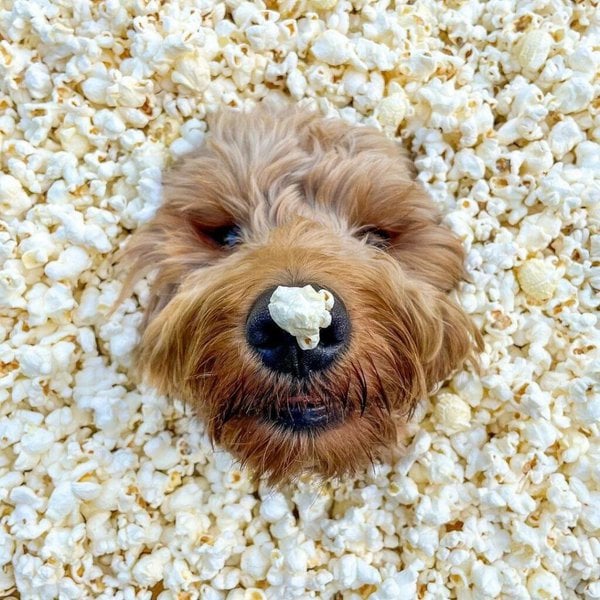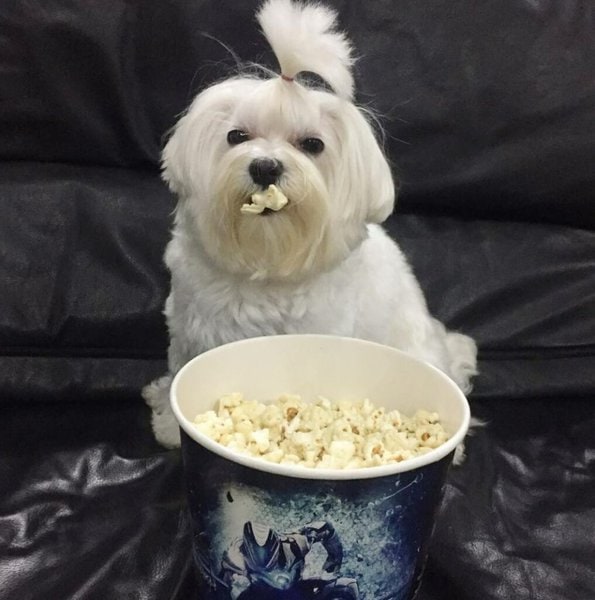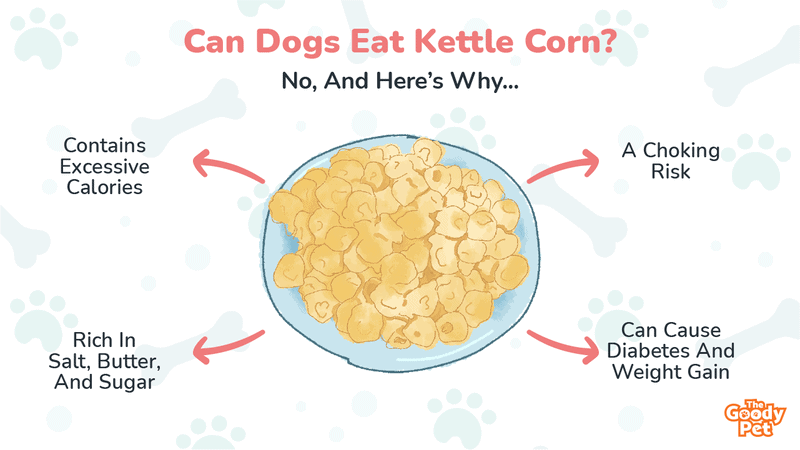My most recent encounter with an owner prohibiting their dog from eating human snacks was with kettle corn. The owner was stern despite the dog’s persistent begging. He was not sure whether the dog could process the snack safely, and to be honest, neither did I. And it got me wondering if dogs should eat kettle corn.
Dogs cannot eat kettle corn because it contains a lot of unhealthy substances that are deemed toxic to dogs. Kettle corn contains a lot more calories, sodium, and sugar than air-popped popcorn due to the additives used in this type of popcorn. These additives are not suitable for your pooch’s digestive system and health.
The high butter, salt, and sugar contents in kettle corn are not the healthiest for humans. Therefore, your dog will gain nothing nutritional from this treat. Instead, they will suffer from several digestive issues requiring immediate treatment. Not that popcorn is entirely unsafe for dogs.
The information below extensively covers the major concerns of dogs eating kettle corn and why you should avoid sharing this treat. Let’s start by reviewing the unhealthy ingredients in kettle corn.
Is Kettle Corn Toxic To Dogs?

Kettle corn is toxic to dogs because of the salt, butter, and sugar additives used to make popcorn. These additives have adverse effects on dogs that can even damage their digestive system permanently.
The primary concerns of feeding kettle corn to your dog are:
- Corn allergies – If your dog has corn allergies, it will react negatively to kettle corn. Dogs are commonly allergic to corn, although it does not afflict every pooch. Dogs with corn allergies show symptoms such as skin rashes, bald patches, diarrhea, excessive scratching, and persistent ear infections.
- Gastrointestinal upset – The fats and oils in popcorn can lead to gastrointestinal upset. Your dog may show symptoms such as vomiting, diarrhea, bloating, and unusual frequency in passing gas. The canine will probably crouch and remain in the same position while experiencing stomach pain.
- Dehydration – The high sodium content of popcorn can lead to dehydration. If you don’t notice fast enough, your pooch’s organs will suffer.
- Salt toxicity – Kettle corn has a high sodium content that can lead to salt poisoning in dogs. Salt toxicity manifests as vomiting within hours of ingestion, followed by diarrhea, weakness, muscle tremors, and seizures. Salt toxicity can even be fatal without proper medical attention.
- Diabetes and weight gain – The sugar content in kettle corn is bad for dogs with diabetes and weight problems. Sugar contributes to these problems. Your dog will suffer medically and need medication to manage the symptoms.
- Choking from unpopped kernels – There is always the risk of choking when feeding your dog kettle corn. Unpopped kernels can choke your puppy as they eat. This is a life-threatening situation that requires immediate action.
- Popcorn kernel hulls – Just as humans are afflicted by kernel hulls stuck between their teeth, so will your pet. Humans can use fingers, dental floss, and even brushing to remove hulls stuck between the teeth. Dogs do not have this luxury and will show signs of discomfort, sometimes even refusing to eat.
What To Do If A Dog Eats Kettle Corn?
If your dog mistakenly eats kettle corn, there is no need to panic. Most of the time, small amounts of kettle corn will rarely have any side effects. Therefore, you can wait a few hours and see if your doggie shows any adverse reactions.
However, if your dog eats large amounts of kettle corn, you need to be more attentive. Do not attempt to induce vomiting as this causes further digestive system distress. The most you should do is give your pooch water, but again, do not force-feed.
When you notice discomfort and signs of gastrointestinal distress, get your pet to the vet at once. Similarly, if you know that your dog has a corn allergy, do not wait for a reaction. Take your pup to the vet for immediate medical attention.
Experts also advise taking your pooch to the vet for teeth inspection. You have to ensure your dog does not have hulls stuck between their teeth, causing them discomfort, regardless of whether they show symptoms.
Can Dogs Have Sweet And Salty Kettle Corn?

Dogs cannot have sweet and salty kettle corn. The additives are unhealthy for their digestive systems and trigger vomiting, diarrhea, bloating stomach pain, and an unusual frequency of passing gas.
If you want to share your human treats with your dog, there are plenty of safe options, including apples, carrots, blueberries, and bananas.
Can My Dog Eat Kettle Corn Popcorn?
Most dogs can get into a bowl of kettle corn, eat a few and turn out fine. However, it is never advisable to feed your dog this snack. Never feed your dog kettle corn or similar snacks if they have a corn allergy.
Store your kettle corn in places that are hard to reach. Cover the snack with foil or a lid to prevent accidental eating. If your dog accidentally eats kettle corn in large amounts, take them to the vet for immediate assistance.
Is Popcorn Okay For Dogs?
Popcorn is not bad for dogs if they don’t have a corn allergy and you prepare it correctly. Corn has nutrients and minerals vital to your dog’s overall health. These include thiamin, niacin, and pyridoxine, which regulate dogs’ hormone levels while supporting their immune system. They also help their nervous system.
If you want to feed your dog popcorn safely, air pop it. Avoid adding oil, butter, sugar, salt, or other additives. Plain popcorn is the way to go. In addition, to prevent choking, remove the unpopped kernels before feeding your dog.
Similarly, ensure you remove visible hulls to prevent lodging them in their teeth. You can also get hull-less popcorn since it has tender kernels. Feed your dog with small amounts of popcorn at a time to ensure they do not react negatively. If you notice any negative reactions, avoid feeding your dog popcorn and find a better alternative.






